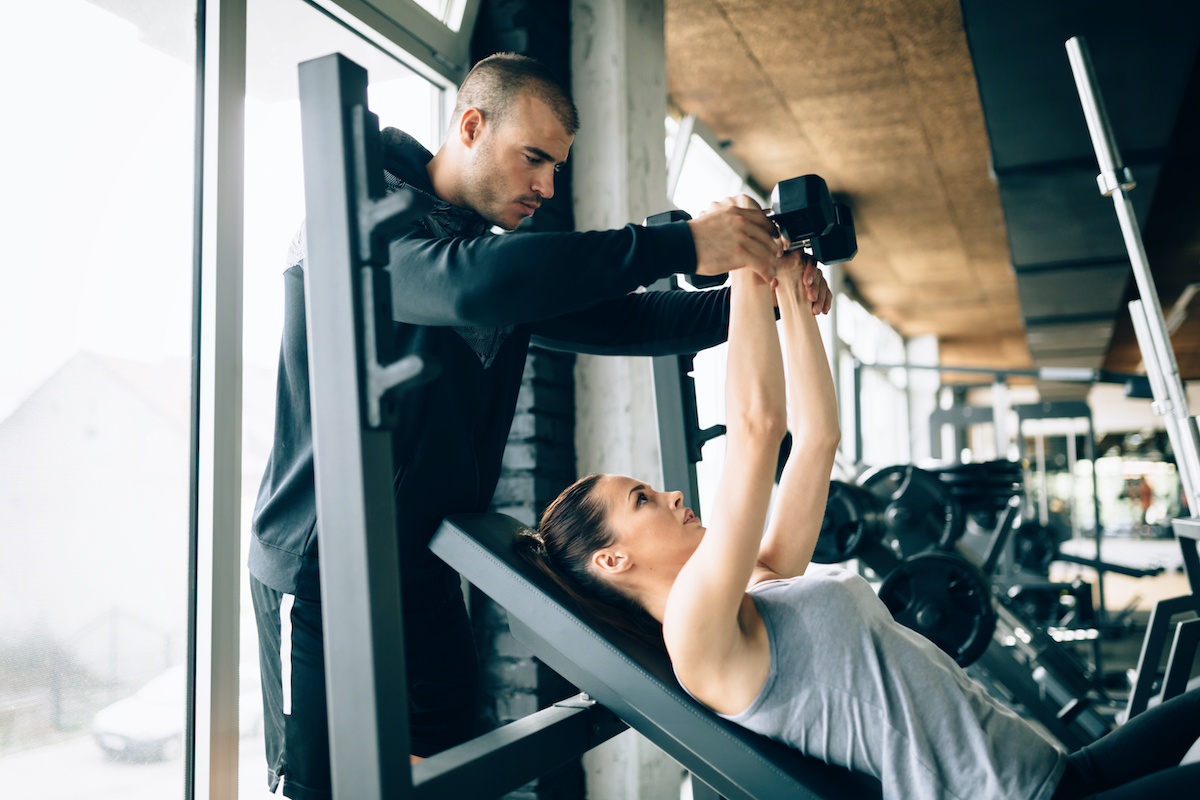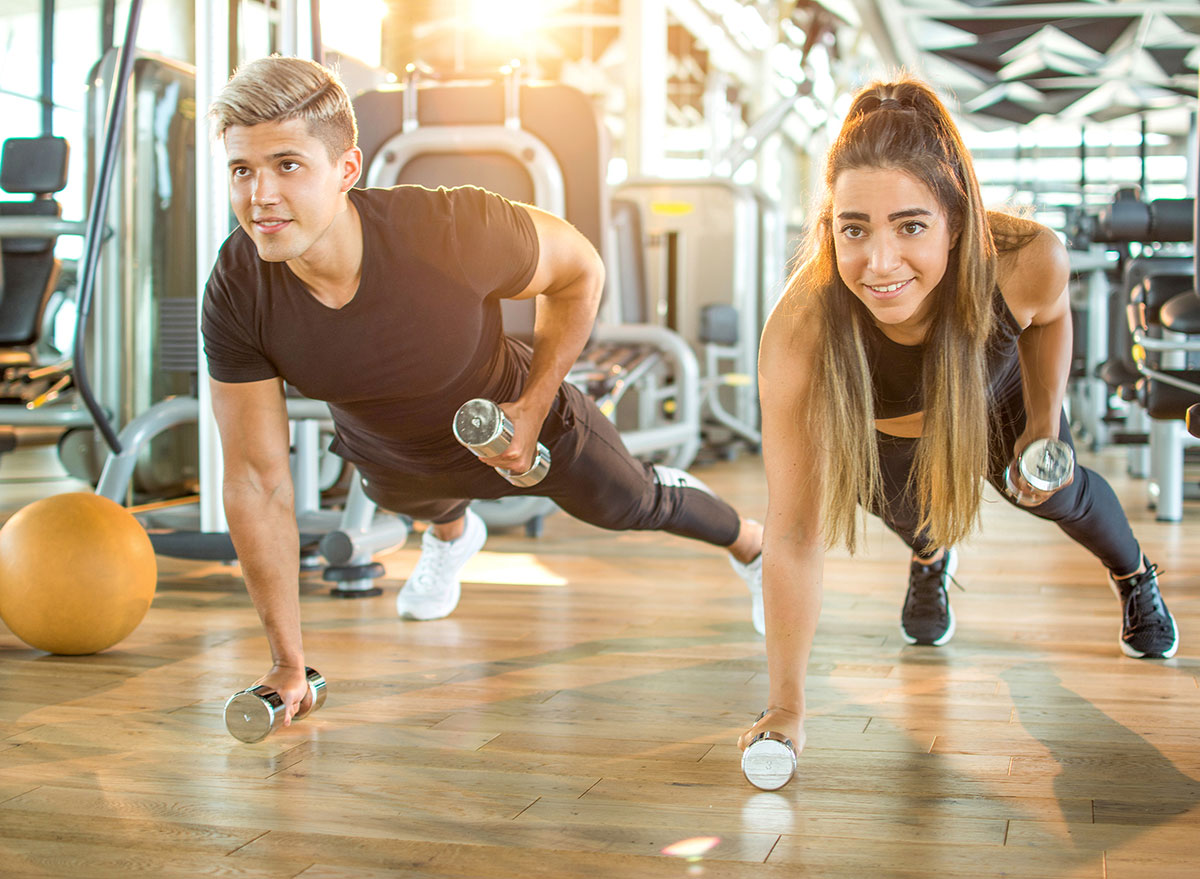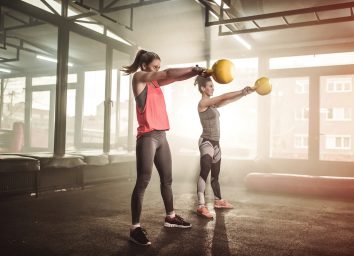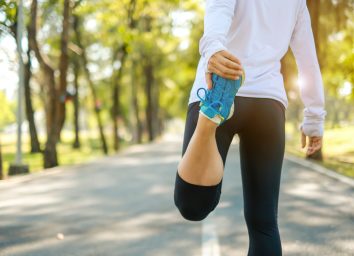Secret Side Effects of Lifting Weights for the First Time, Says Science

If you've never lifted weights before, you probably think you're at a disadvantage when it comes to building muscle and making your fitness aspirations a reality. But, believe it or not, you have the most to gain. In fact, picking up strength training for the first time results in a wild ride that is usually characterized by rapid changes to your body. "When you are a beginner you are at an advantage as far as results are concerned, and not simply just adding muscle," says kuudose celeb trainer, Joey Thurman, CES CPT FNS.
Now, let's be clear: You need to be pumping iron, no matter your age or your body type. Many older adults tend to assume they'll be better off focusing solely on cardio, but that's a major misconception. Maintaining adequate muscle mass and function in old age is essential to growing old in a healthy manner. This study, published in the scientific journal Obesity, concludes that older adults are much better off lifting weights over cardio if they want to lose weight without sacrificing any muscle mass.
Perhaps your nerves have kept you from the bench press up until now. It's totally understandable. A gym can be a scary place the first time you walk inside. Even seasoned fitness experts deal with self-doubt from time to time. "Gym anxiety is so common," Lis Saunders, C.S.C.S., a powerlifting coach based in Atlanta, told Self. "I've always battled social anxiety, so even though I have lots of lifting and coaching experience now, I still feel anxious every time I go to the gym."
So remember: Pushing yourself to get off the couch and making that first trip to the weight room may be the hardest part. But once you pick up weightlifting… What happens to you and your body? Read on to find out. And for more amazing exercise advice, don't miss the Unexpected Side Effects of Working Out in the Morning, Say Experts.
Welcome to the World of "Newbie" Gains

As long as you stick to a steady weightlifting schedule, get plenty of rest, and eat right, prepare to see some serious gains over the first few weeks of your new regimen. If you're only just starting, your muscles aren't used to weightlifting at all—which means they're primed and ready to adapt quickly to the new stimuli.
"When you first begin weightlifting, you're shocking your body into a pattern of resistance training it's not used to, which spikes rates in muscle protein synthesis," explains Matt Scarfo CPT-OPT, CES, PES, FNS, of Lift Vault. "This is the rate at which you pack on muscle, and for those that are new to weightlifting, or any form of resistance training, levels take much longer to come down than intermediate or advanced lifters. As a result, your body is spending more time in the muscle-building process as a beginner because of a greater response to workouts, which is a main cause of newbie-gains."
Research published in Sports Medicine supports the validity of newbie gains, concluding that the average beginner weightlifter tacks on about four to seven pounds of extra muscle over their first three months of lifting. Meanwhile, Mae Alexis, CPT, of Nanala Cove, says that over your first full year of weightlifting you can expect to burn anywhere from 12-24% body fat while adding somewhere between 10 and 25 pounds of extra lean muscle.
Why is this happening? According to Kate Meier, PT, a certified USA weightlifting level 1 coach and editor at Garage Gym Reviews, you're experiencing improved muscle contraction for the first time. "This is a neuromuscular adaptation," she explains. "Let's say you are doing squats for the first time ever. Because you have never done the exercise before, your body will only be able to recruit a small percentage of your muscle fiber's potential to perform the movement compared to someone who is an experienced lifter. As you perform the movement more over time your brain sends signals to your muscles to engage more muscle fibers and for them to contract harder so basically improving the ability to flex your muscles."
As the muscle fibers loosen up and start doing more work, it actually leads to a greater breakdown, or tearing, of those fibers—which is a good thing. Breaking down also means being built back up in a stronger fashion. "This adaptation is what causes big jumps in the lifts of beginners. It is common for new lifters to add 10-40lbs to their max lift in a month, where an experienced lifter may hope for a 5lb increase over the course of a year," she adds. And if you're inspired to lift now, make sure you're aware of The Single Greatest Weightlifting Move for Shedding Pounds, Says Science.
But Yes, You'll Get DOMs

Of course, starting up a new weightlifting routine isn't all sunshine and roses. As alluded to earlier, building muscle means breaking down the muscle first, and that's pretty much guaranteed to result in some major soreness for lifting beginners. Your muscles aren't used to lifting, which is great for quick gains, but don't be surprised if you wake up the day after a lifting session feeling like your entire upper body was hit by a truck.
Technically called "delayed onset muscle soreness" (DOMS), muscle soreness is an unavoidable part of weightlifting, especially in the beginning. The American College of Sports Medicine tells us that soreness usually comes on 12-24 hours post-lift with the pain peaking around one to three days after the fact. It may sting in the moment, but remember soreness means what you're doing is working!
"A word for novices: know that you're going to be very very sore at first," says Christina Friedman, founder of Women's Fitness HQ. "In fact, the DOMs as people like to call them are delayed—so you'll likely find yourself dealing with peak soreness two days after your first lift—which is likely your second day of lifting. It [stinks], but the best thing you can do is drag your butt to the bar and lift through it. By the second week, you're going to feel a lot better."
Your Self-Confidence Will Skyrocket

Fact: Weightlifting helps with self-confidence. When we exercise, it releases tons of feel good brain chemicals such as endorphins, serotonin, and dopamine. Also, those quick newbie gains are sure to help you feel more comfortable in your own skin. "The biggest thing I see, particularly in the women I train and coach, when they start weightlifting for the first time is a huge boost in their confidence and self-esteem," says Tami Smith, CPT, of Fit Healthy Mama. "There is something so empowering about lifting weights and pushing your body using a new stimulus and realizing that you're strong and capable."
Weightlifting also helps improve posture, which can go a long way toward fostering an elevated sense of self. "You also improve your posture, which then leads to an increase in confidence," notes Joshua Forster, PT. "This is something people pick up on. So you then notice you're getting more respected from others, than you did before. You also feel more comfortable asking assertive questions. Such as being more willing to ask someone out on a date or asking for that pay rise."
You'll Have More Awareness of Your Body

Early in your weightlifting journey you may begin to notice muscles and entire body areas that went completely unnoticed beforehand. As the muscles throughout your body strengthen, your balance, coordination, and positioning awareness all improve, as well.
"Another bodily change to expect is that you will develop a greater sense of body awareness," explains Jeff Parke, owner of Top Fitness Magazine. "This will lead you to feel stronger, stand with better posture, and feel more coordinated. This is because when you lift weights you focus on working specific parts of your body with correct form. You will then begin to notice how you are using these same muscles in daily life and will use them more efficiently."
You'll Sleep Like a Champ

A new weightlifting routine is also a great way to improve your sleep quality and duration. "Since muscles need more energy, they also need more sleep too. Weightlifters tend to sleep great when they first start thanks to how strenuous a good workout is," comments Jack Craig, CPT, of Inside Bodybuilding.
This study published in Preventive Medicine Reports examined over 20,000 people and found that adding in any amount of weightlifting over the course of a given week is linked to improved sleep quality. "Future health behavior modification strategies to enhance sleep quality at the population-level should consider promoting muscle-strengthening exercise," study authors conclude. And for more great exercise advice, don't miss The Secret Side Effect of Lifting Weights You Didn't Know, Says Science.








